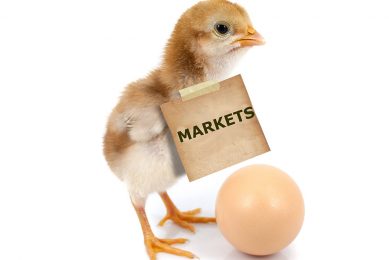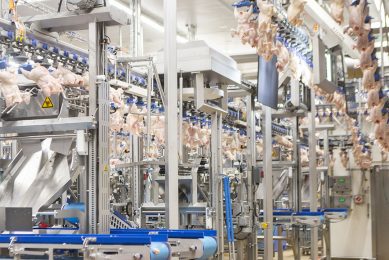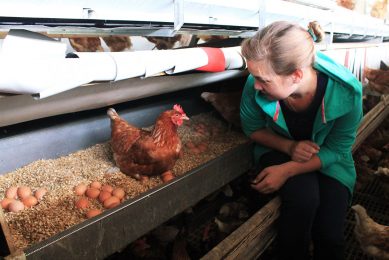Proposed rule to increase fairness in poultry marketing
USDA’s Grain Inspection, Packers and Stockyards Administration (GIPSA) will publish a proposed rule, as required by the 2008 farm bill and through existing authority under the Packers and Stockyards Act, that would provide significant new protections for producers against unfair, fraudulent or retaliatory practices.
“Concerns about a lack of fairness and commonsense treatment for livestock and poultry producers have gone unaddressed far too long,” said Secretary of Agriculture Tom Vilsack. “This proposed rule will help ensure a level playing field for producers by providing additional protections against unfair practices and addressing new market conditions not covered by existing rules.”
The proposed rules address concerns that have been discussed for many years and were developed at the direction of the 2008 farm bill, which requires USDA to carry out specific rulemaking to improve fairness in the marketing of livestock and poultry. During farm bill discussions in 2007, over 200 organizations across the country urged Congress to include a livestock title to improve market fairness and competition for producers. Additionally, USDA identified other areas where new rulemaking is needed to ensure the marketplace is fair and competitive for producers. Many of the concerns addressed in the rule were raised during the dozens of Administration Rural Tour stops attended by Secretary Vilsack in 2009, and the joint USDA-Department of Justice Competition Workshops held this year.
Additionally, GIPSA held 3 public meetings in 2008 to gather comments, information, and recommendations from interested parties.
Many of the concerns were related to increasing consolidation and vertical integration in the livestock and poultry marketplace, and shrinking farm numbers. For instance, in the poultry industry today, a grower makes 34 cents per bird, while the processing company however on average makes $3.23 a bird.
The proposed rule announced would provide the following protections:
• Provide further definition to practices that are unfair, unjustly discriminatory or deceptive, including outlining actions that are retaliatory in nature, efforts that would limit a producer’s legal rights, or representations that would be fraudulent or misleading. Additionally, the proposed rule reiterates USDA’s position that a producer need not overcome unnecessary obstacles and have to always prove a harm to competition when they have suffered a violation under the Act.
• Define undue or unreasonable preferences or advantages.
• Establish new protections for producers required to provide expensive capital upgrades to their growing facilities, including protections to ensure producers have the opportunity to recoup 80 percent of the cost of a required capital investment.
• Prohibit packers from purchasing, acquiring or receiving livestock from other packers, and communicate prices to competitors.
• Enable a fair and equitable process for producers that choose to use arbitration to remedy a dispute. Additionally, clear and conspicuous print in the contract will be required to ensure producers are provided the option to decline the use of arbitration to settle a dispute.
• Require that companies paying growers under a tournament system provide the same base pay to growers that raise the same type and kind of poultry, including ensuring that the growers pay cannot go below the base pay amount.
• Provide poultry growers with a written notice of a company’s intent to suspend the delivery of birds under a poultry growing arrangement at least 90 days prior to the date it intends to suspend the delivery;
• Improve market transparency by making sample contracts (except for trade secrets or other confidential information) be made available on GIPSA’s website for producers;
• Outline protections so that producers can remedy a breach of contract;
• Improve competition in markets by limiting exclusive arrangements between packers and dealers.













